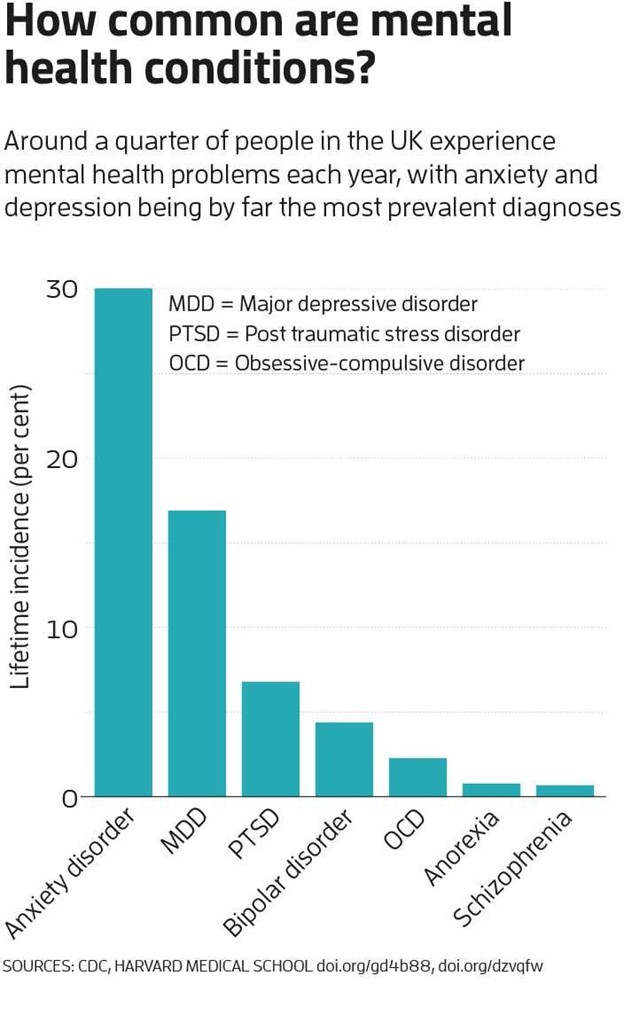
Mental health conditions are medically recognised disorders that affect your mood, thoughts and behaviour. They can cause serious problems such as difficulty functioning at home, at work and in social life. You may be affected by anxiety, depression or a combination of emotions. Some of these disorders are very severe and can lead to a reduced quality of life, unemployment, disability and even suicide. Effective psychological treatment exists and for some patients, medication may also be considered. If you do not seek help for a mental illness, the consequences can be devastating both for yourself and for society. The economic cost of untreated mental illness in America alone is more than 100 billion dollars each year.
The most common mental illnesses are anxiety disorders, depression and post-traumatic stress disorder (PTSD). The ABS National Health Survey in 2017-18 found that 4.8 million Australians (20.1%) experienced a mental health condition in the previous 12 months. Those with a higher level of distress were female and those on lower incomes.
How do you know if you have a mental health condition?
The main way a doctor diagnoses a mental health condition is by asking questions about how you’ve been feeling and examining your body. Sometimes other professionals, such as psychiatrists, psychologists and occupational therapists, can provide a diagnosis. If your symptoms are severe and impact your daily activities, you will need to see a psychiatrist or psychologist for a formal diagnosis.
What causes mental health conditions?
Researchers are still trying to understand what causes mental illness, but we do know that it’s not caused by one thing. There are likely to be a variety of factors, including genetics and how your brain works. Other important factors include your lifestyle, your environment, your family and your culture, and traumatic events in your life. Some medications and changes in the chemical messengers in your brain can also contribute to mental illness.
Mental illness can happen to anyone, regardless of race, religion or gender. It is not caused by a lack of character or poor upbringing, and it can be treated just like any other health condition. The good news is that most people who have a mental illness can recover with the right support, therapy and medication. If you’re worried about a friend or family member, please encourage them to seek help. The earlier they get treatment, the better their chance of recovery. You can also contact the suicide prevention hotline for support and advice. There are also community support services, such as Alcohol and Drug Helpline Australia and Men’s Shed. For more information, visit our Getting help page. Or download our free mental health fact sheet.





Phenix Health delivers online health services 24/7 provided by Australian doctors and healthcare professionals.